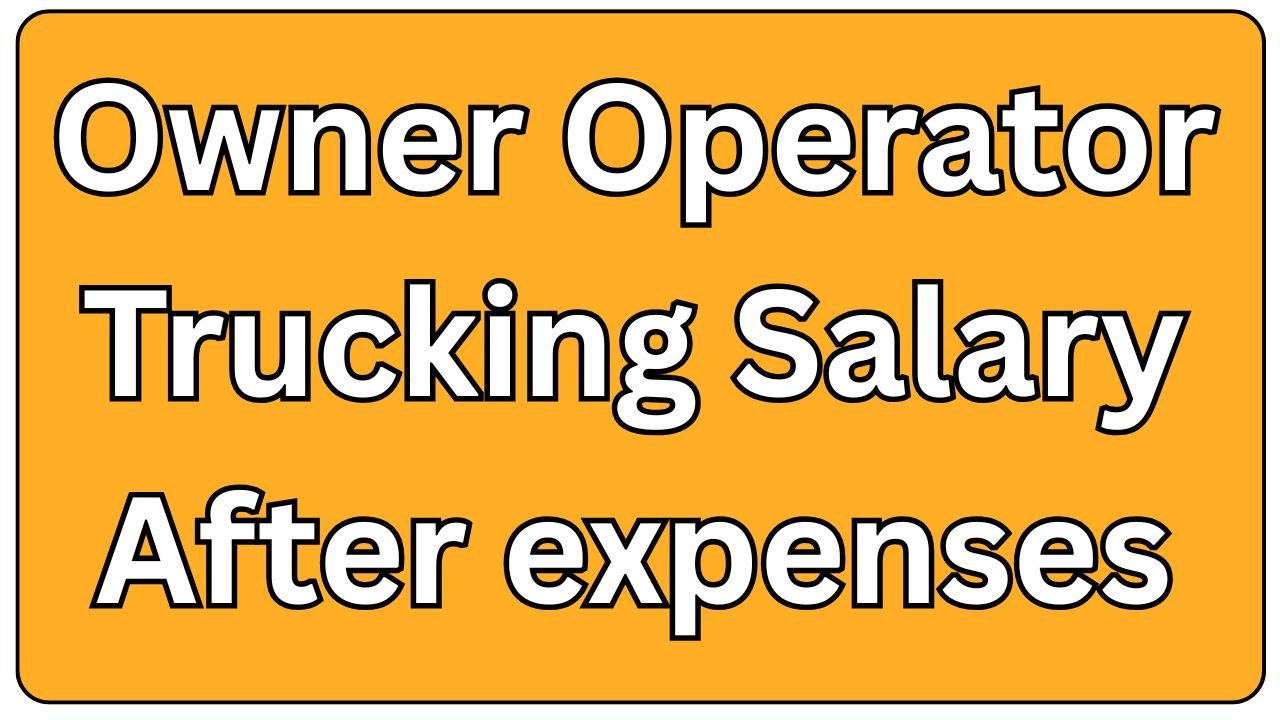Discover how much owner-operator truck drivers really make after expenses in 2025. Learn about average net income, major costs like fuel and insurance, and factors that affect earnings such as freight type, mileage, and load rates. This complete guide provides real examples and tips for maximizing take-home pay as an independent trucker.
Owner-Operator Trucking Salary After Expenses: A 2026 Guide
Owner-operators in the trucking industry have the potential to earn substantial income, but that income varies widely based on multiple factors. Unlike company drivers, owner-operators take on both the risks and the rewards of operating their own trucking business. After accounting for all expenses, most owner-operators earn between $50,000 and $100,000 annually.
Income Potential for Owner-Operators
Owner-operators typically get paid per mile or per load, rather than receiving a fixed salary. This means earnings are directly tied to the amount of work completed. Gross annual revenues can range from $150,000 to $250,000 depending on workload, routes, and freight type. However, these gross figures do not reflect the full picture, as expenses must be deducted.
Common Expenses for Owner-Operators
To understand net income, it’s essential to consider typical operating expenses:
- Fuel: Often the biggest cost, making up to 40% of total expenses.
- Maintenance & Repairs: Routine maintenance and unexpected repairs can quickly add up.
- Truck Payments: If leasing or financing a truck, this is a significant monthly expense.
- Insurance: Liability, cargo, and physical damage insurance are all required.
- Permits and Licenses: Annual and state-specific fees are essential to keep operations legal.
- Tolls and Parking: Especially costly in metropolitan and high-traffic regions.
- Food and Lodging: Long-haul drivers often have to spend money on meals and accommodations.
Factors That Impact Net Earnings
Several key factors influence how much an owner-operator takes home:
1. Freight Type
Hauling specialized freight such as oversized loads or hazardous materials usually pays more than standard freight. Refrigerated and flatbed freight also tend to have higher rates.
2. Distance and Routing
Longer hauls often generate more revenue but also increase fuel and maintenance costs. Smart route planning can help balance income and expenses.
3. Market Demand
High-demand seasons or routes can lead to better-paying loads. Staying updated with freight trends and using load boards strategically is crucial.
4. Business Management
Those who efficiently manage fuel consumption, maintenance, and downtime tend to earn significantly more. Using digital tools and software to track expenses can increase profitability.
Realistic Example of Net Income
Let’s say an owner-operator grosses $200,000 in a year. With careful management, expenses might be around $140,000 to $150,000. This leaves a net income of $50,000 to $60,000, depending on individual cost management.
Experienced owner-operators with established client networks and optimized expenses can push their net income closer to $100,000 annually.
FAQs
How much do truck owners make per month in the USA?
Net monthly income typically ranges from $4,000 to $8,000, depending on haul frequency, expenses, and freight type.
What is the highest paying owner-operator job?
Specialized freight such as oversized loads, hazardous materials, and tankers generally offer the highest pay.
What is the biggest expense for a trucking company?
Fuel is usually the largest expense, followed by truck payments and insurance.
Do truck drivers make good money in the USA?
Yes, especially owner-operators who manage their business efficiently. Company drivers earn less but have fewer expenses.
How much do owner-operators make after expenses?
Most earn $50,000 to $100,000 annually after all expenses.
Conclusion
Owner-operator trucking offers a pathway to strong earnings, but success depends on effective business management, freight choices, and expense control. With the right strategy, drivers can not only make a good living but also build a sustainable and profitable career in trucking.

